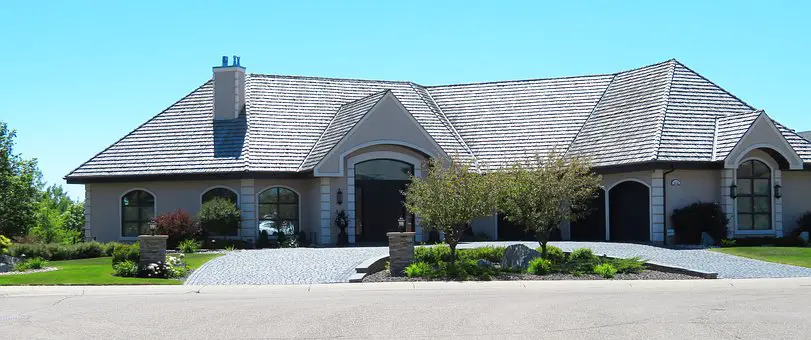
Even without getting too deep in the science of psychology, mental health is a broad subject that may require a whole book to cover. However, tons of research studies have proven time and again that the environment we live and work in can have a huge impact on our physical, emotional, and mental well-being. In layman’s language, what this means is that as a homeowner, it is highly important to consider certain aspects of your indoor and outdoor surroundings before you even think of building a home or buying one. On the other hand, if you already have a home that you live in, there are various things that you can do and changes that you can make to improve your overall well-being. Before we get out of scope, the structure of your home can have a tremendous impact on your psychological health as well as your overall well-being.
On this note, here are 6 factors that determine how your home structure could affect your psychological health.
1. Size
When constructing or buying a home, size is one of the factors that most people consider most. This is basically because not all people (and their families) will fit on and ordinary single-family, one-bedroom or a two-bedroom house. The thing is, we all have different needs and preferences when it comes to homes. Some want to have more than one bathroom in the house, whereas some of us wouldn’t mind sharing a bathroom. Some will prefer a bigger kitchen, whereas some will need an extra bedroom for the guests after all the family members have somewhere to lay down at the end of the day. Most people determine the size of their ideal home by considering the number of dwellers or family members that’ll be living there.
All the same, research has proven that the size of a home can in a big way affect its dwellers’ mental well-being. Studies have also shown that in a living or working environment that feels and looks squeezed up, most people tend to be less productive. The size of your home can affect your cognitive ability in a way. When you have more free space, you’re more likely to be in a good mood most of the time and you don’t feel as if you’re locked up in a cell. This is perhaps one of the reasons why people with huge houses with plenty of facilities and amenities tend to be happier and more focused in life.
2. Comfort
Before we go far, the previous point (size) will also affect the level of comfort in your home. However, there is more surrounding the aspect of comfort than just size. For instance, for most homeowners, living alone in a huge, multi-roomed house, which is not well-furnished and equipped with comfort-enhancing amenities, can be a sad experience. It can also affect your sleep and relaxation, which could lead to stress and other mental health issues in the long term. Again, if you live in a home with noisy neighbors, nightclubs, and traffic noise nearby, comfort can be a nightmare for you.
The good thing is that you can always make some changes, upgrades, and modifications to improve your home’s comfort for better psychological health. On this note, experts at A Quiet Refuge say that simple changes such as using foam panels to soundproof your home could be all you need to enhance your living space and better your psychological health. These are soundproofing systems made from acoustic panels, which have been found effective in blocking unwanted noise from entering your home and any noise produced in your home (if any), from leaving. If you’ve been following, soundproofing goes a long way in enhancing your comfort directly and indirectly.
3. Lighting
Even though it may not fit literally in the definition of structure, lighting is one of the most important aspects of a home’s overall structure. While some people prefer living environments that are darker, some feel better in well-lit spaces, both residential and for work. In general, however, lighting is known to impact on cognitive ability as well as productivity in humans. As a matter of fact, dark spaces are more associated with sadness. Also, natural light has been proven to affect the level of an individual’s alertness, mood, and sleep patterns. More light is associated with higher levels of serotonin in the body, which one of the determining factors of happiness levels. Simply put, how you light up your home can have a huge impact on your psychological well-being.

4. Paint and Color
The human brain is also wired in a way that color has a huge impact on his behavior, mood, and stress levels. Despite the fact that this is a universal correlation regardless of location, it so happens that the effect of color on the emotional and mental status of an individual is more pronounced in their home. In other words, the paint and colors you have on your walls, furniture, and surroundings may affect your emotional well-being in a huge way. It can affect your happiness, productivity, and satisfaction. It can determine your stress levels too.
Research has proven that color impacts behavior and emotions. For instance, green and blue colors tend to trigger happy and feel-good emotions more than other colors. For example, do you get some sort of satisfaction or feel-good feeling when you look outside the window and see a colorful garden with green and flowery colors? Does this feeling get amplified if there’s a (blue) water body next to such a garden? Try that, and on a scale of 1 to 10, higher chances are that the answer will be yes in both questions. In short, the colors you use in your home (both for paints, and fabric) can have a huge impact on your psychological wellness and without having to mention it, these are part and parcel of your home’s structure!
5. Overall Design, Layout, and Architecture
Architecture, home layouts, floor plans, and overall home designs have evolved over time. Unlike in the past, when homes were so segmented and rigid, many home designers and architects are adopting a completely different approach when creating home structures nowadays. It’s been proven by research that designs that are open and unrestricted are more beneficial to the property owners/dweller’s mental health. There’s also a school of thought that says open designs can strengthen your cognition.
6. Social Status and Overall Aesthetics
How appealing your home looks will largely depend on its exterior and interior aesthetic appeal. Now, if you live in a home that you don’t find appealing, it will affect your attitude towards it, which may, in turn, affect your emotional well-being in one way or another. This is mostly because you may feel that you don’t live in your ideal kind of home. If your home is structurally appealing to you as well as your guests and neighbors, they may drop compliments every now and then, which is good for your mental health.

Basically, where you live can affect your lifestyle and your life in overall in several ways. It can have an impact on your happiness, mood, and satisfaction. The environment you live or work in can determine your stress levels and how you manage to cope with stress. In a nutshell, your home’s structure can affect your psychological well-being in general, and the above pointers can help shed light on the how and the why.